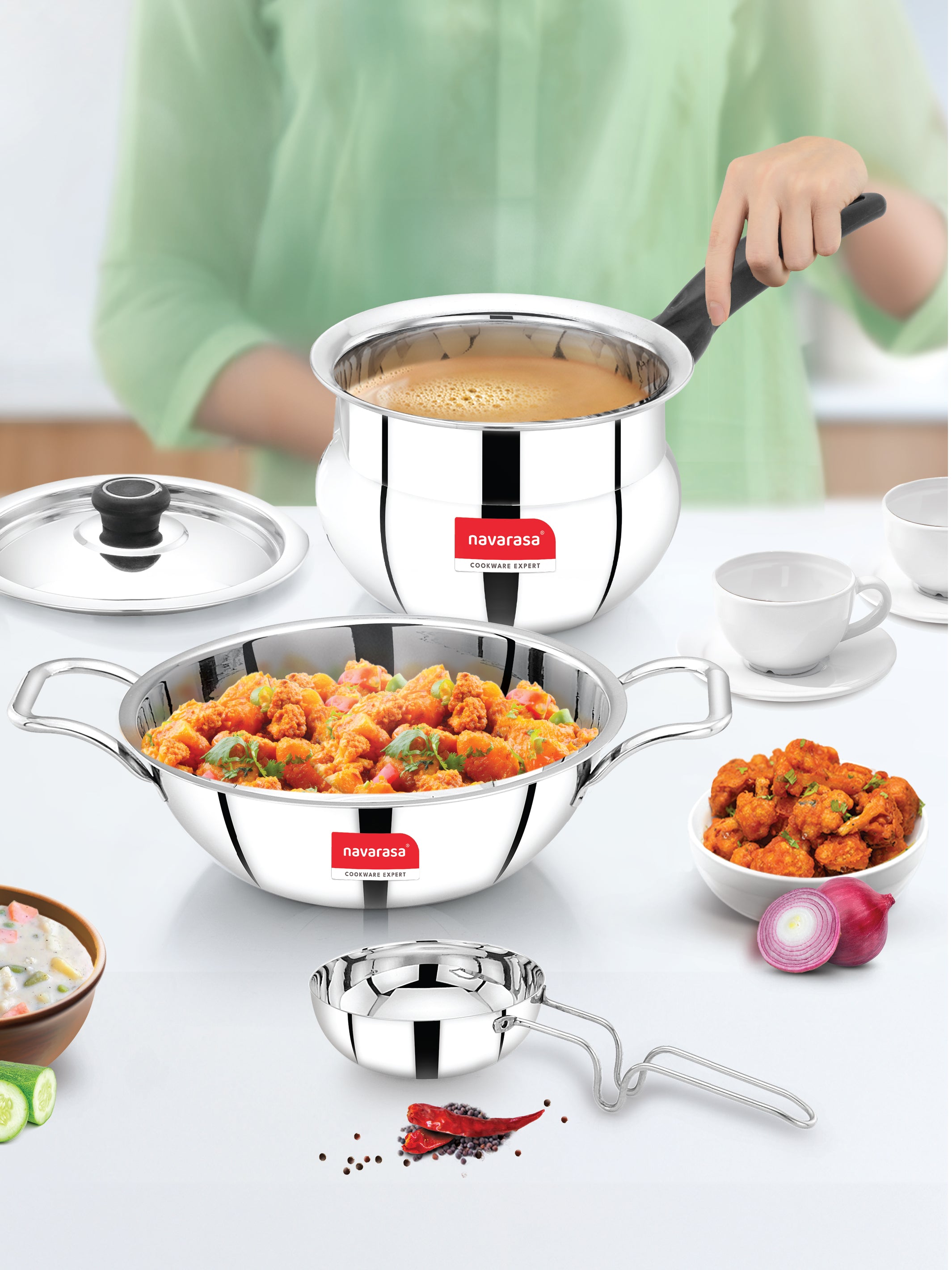Advantages of Stainless Steel Cookware Over Aluminum Cookware

When it comes to choosing cookware, both stainless steel and aluminum have their own benefits, but stainless steel often stands out as the preferred option for many home chefs. Here are some key advantages of stainless steel cookware compared to aluminum cookware:
- Durability and Longevity
- Stainless Steel: Known for its exceptional durability, stainless steel is resistant to warping, scratching, and corrosion. It can withstand high heat and is less likely to dent or lose its shape over time.
- Aluminum: While lightweight and easy to handle, aluminum can warp under high temperatures and is more prone to scratching.
- Non-Reactive Surface
- Stainless Steel: This material is non-reactive, meaning it won’t interact with acidic or alkaline foods. This helps preserve the flavor and quality of your dishes, making it ideal for cooking a variety of ingredients.
- Aluminum: Aluminum can react with acidic foods (like tomatoes or vinegar), potentially affecting the taste and color of your meals.
- Heat Distribution
- Stainless Steel: High-quality stainless steel cookware often has an aluminum or copper core, providing excellent heat distribution while maintaining the durability of stainless steel. This ensures even cooking and reduces hot spots.
- Aluminum: While aluminum heats quickly and evenly, it can cool down just as fast, which may lead to uneven cooking if not monitored closely.
- Maintenance and Cleaning
- Stainless Steel: Stainless steel is generally easier to clean and maintain. It is dishwasher safe and resists staining and odors, making it a convenient option for daily use.
- Aluminum: Aluminum cookware may require more care, as it can stain and discolor over time, especially if used with acidic foods.
- Health Considerations
- Stainless Steel: Free from harmful chemicals, stainless steel cookware does not leach substances into food, making it a safe choice for health-conscious cooks.
- Aluminum: There are concerns about aluminum leaching into food, especially when cooking acidic dishes. Although many aluminum pans are anodized or coated to prevent this, it’s a consideration for some users.
- Aesthetic Appeal
- Stainless Steel: With its polished, shiny finish, stainless steel cookware is visually appealing and often looks elegant in both the kitchen and on the dining table.
- Aluminum: While practical, aluminum cookware typically lacks the sleek, polished look of stainless steel.
- Versatility
- Stainless Steel: Suitable for a wide range of cooking methods—stovetop, oven, and even induction—stainless steel cookware is versatile and can handle various recipes with ease.
- Aluminum: While it can also be used for many cooking methods, not all aluminum cookware is oven-safe, which may limit its versatility.
Conclusion
While both stainless steel and aluminum cookware have their places in the kitchen, stainless steel offers several advantages that make it a superior choice for many cooks. Its durability, non-reactive nature, ease of maintenance, and aesthetic appeal contribute to a better cooking experience. Whether you're an everyday cook or a culinary enthusiast, investing in stainless steel cookware can elevate your kitchen game and ensure delicious results in your meals.


